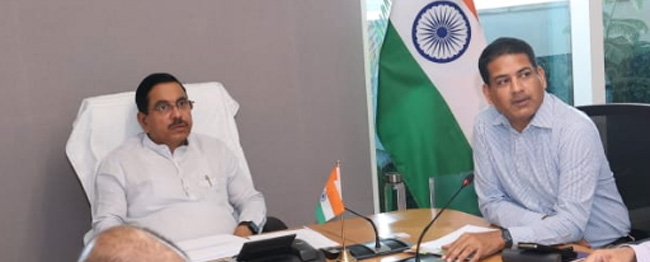New Delhi: The Ministry of New and Renewable Energy (MNRE) today announced significant revisions to its Waste-to-Energy (WtE) Programme, a crucial component of the National Bioenergy Programme. These updated guidelines are set to revolutionize the bio-waste to energy sector in India, fostering a more efficient, transparent, and performance-oriented environment for both public and private players.
The reforms, championed by Minister MNRE, Prahlad Joshi and implementation by MNRE Secretary Santosh Sarangi, aim to drastically improve the ease of doing business by simplifying procedures, expediting financial assistance, and directly linking support to actual plant performance.
Key Highlights of the Revised Guidelines:
- Simplified Processes: The Ministry has significantly reduced paperwork and streamlined approval requirements, particularly benefiting Micro, Small, and Medium Enterprises (MSMEs). This will accelerate the production of Compressed Biogas (CBG), Biogas, and Power, aligning with India’s waste management goals, including the utilization of stubble and industrial waste, and the overarching target of net-zero emissions by 2070.
- Flexible Central Financial Assistance (CFA): A major shift in the new framework is the phased and performance-based release of CFA. Previously, developers had to wait until projects achieved 80% generation to receive support. Now, the CFA will be disbursed in two stages:
- 50% of the total CFA will be released upon obtaining the “Consent to Operate” certificate from the State Pollution Control Board, backed by a bank guarantee.
- The remaining CFA will be released after the plant achieves 80% of its rated or maximum eligible capacity, whichever is less.
- Crucially, a pro-rata disbursement mechanism has been introduced for plants not achieving 80% generation, provided their Plant Load Factor (PLF) remains above 50%. Projects with a PLF below 50% will not be eligible for CFA. This provides much-needed financial flexibility and viability to developers.
- Enhanced Inspection Process: To ensure greater credibility and accountability, the inspection process has been refined. Joint inspections will now be mandated, led by the National Institute of Bio-Energy (SSS-NIBE), an autonomous institute of MNRE, in collaboration with State Nodal Agencies (SNAs), Biogas Technology Development Centers (BTDCs), or other MNRE-empanelled agencies. For developers not seeking advance CFA, only a single performance inspection will be required, minimizing procedural delays.
- Extended Claim Period for CFA: Project developers now have increased flexibility to claim CFA either within 18 months from the date of commissioning or from the date of In-principle approval of CFA, whichever is later.
These comprehensive revisions underscore the government’s proactive commitment to bolstering India’s clean energy industries. By making funding more accessible and aligning financial support with tangible performance, the MNRE is fostering a robust and supportive environment for the Waste-to-Energy sector. This initiative is expected to play a pivotal role in strengthening India’s sustainable waste management practices and accelerating its journey towards its ambitious Renewable Energy goals.


